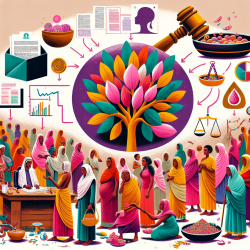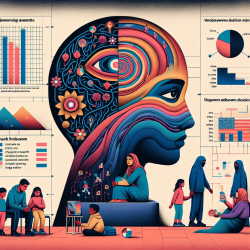Introduction
Infertility is a global health issue affecting approximately one in six people worldwide, with profound psychological, social, and financial implications, especially for women in low- and middle-income countries like Ethiopia. Despite its significant impact, infertility is often overlooked as a disability, leading to inadequate rehabilitation services for affected women. A recent study, "Addressing the Rehabilitation Needs of Women Experiencing Infertility in Ethiopia: Time for Action," sheds light on this pressing issue and calls for urgent action to improve outcomes for women facing infertility in Ethiopia.
Understanding Infertility as a Disability
The study highlights the need to redefine infertility as a disability, recognizing its disabling effects on women's lives. Infertility can lead to social exclusion, psychological trauma, and a diminished quality of life. By acknowledging infertility as a disability, we can reduce stigma, enhance access to resources, and provide comprehensive support for affected women.
Rehabilitation Services: A Critical Need
The research emphasizes the importance of integrating rehabilitation services into fertility care. Women experiencing infertility require holistic support, including mental health services, physical health interventions, and education. A multidisciplinary approach, involving psychologists, social workers, and medical professionals, can significantly improve the quality of life for these women.
Policy and Community Engagement
Strengthening policies around infertility and increasing community awareness are crucial steps toward addressing this issue. The study reveals a significant policy implementation gap, with infertility often overlooked in favor of other healthcare priorities. By prioritizing infertility as a public health issue, policymakers can ensure that women receive the necessary support and resources.
The Role of Religiosity in Rehabilitation
Religiosity plays a significant role in coping with infertility, providing emotional strength and resilience. Incorporating religious beliefs and practices into rehabilitation services can enhance psychological well-being and personal growth for women experiencing infertility.
Conclusion
Addressing the rehabilitation needs of women experiencing infertility in Ethiopia requires a multifaceted approach, involving policy improvements, community engagement, and comprehensive rehabilitation services. By recognizing infertility as a disability and providing holistic support, we can empower women to overcome the challenges they face and improve their quality of life.
To read the original research paper, please follow this link: Addressing the Rehabilitation Needs of Women Experiencing Infertility in Ethiopia: Time for Action.










